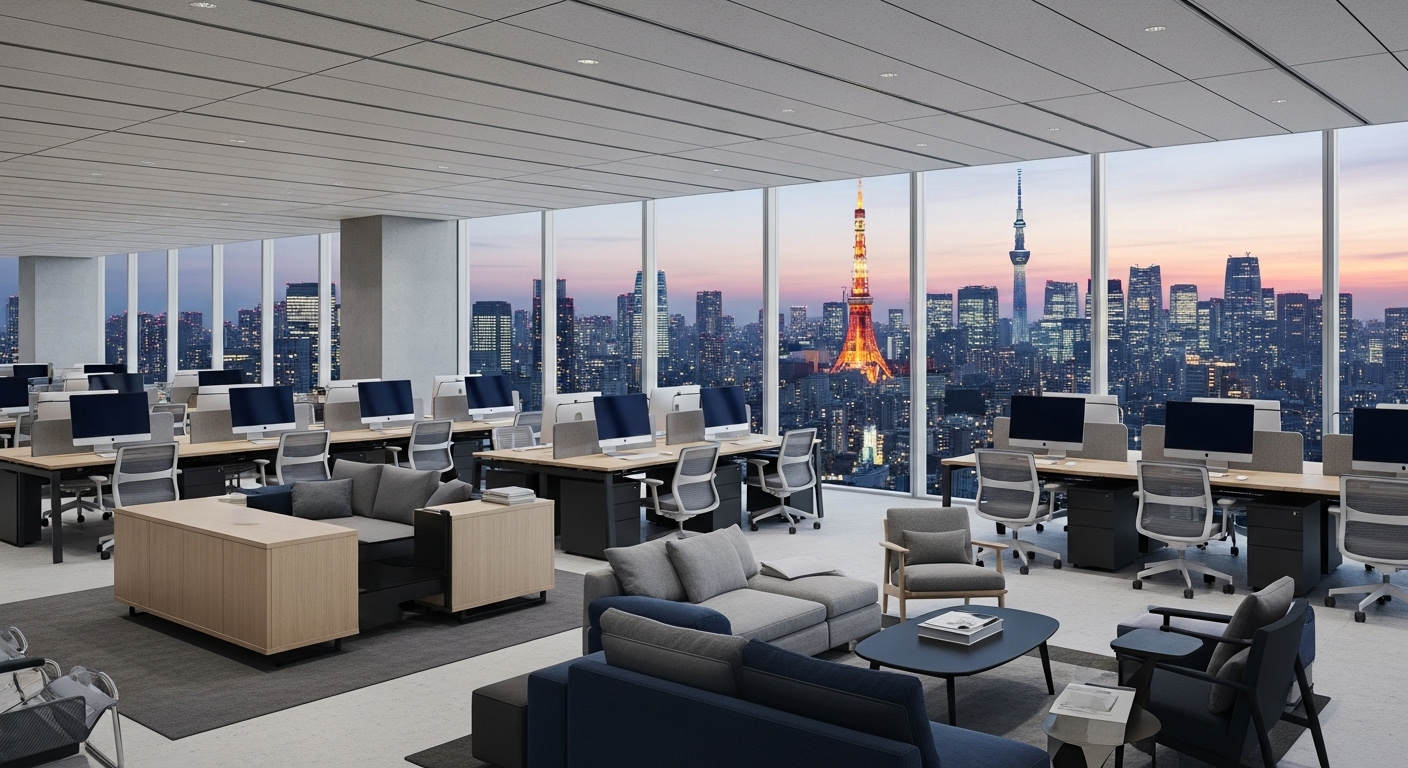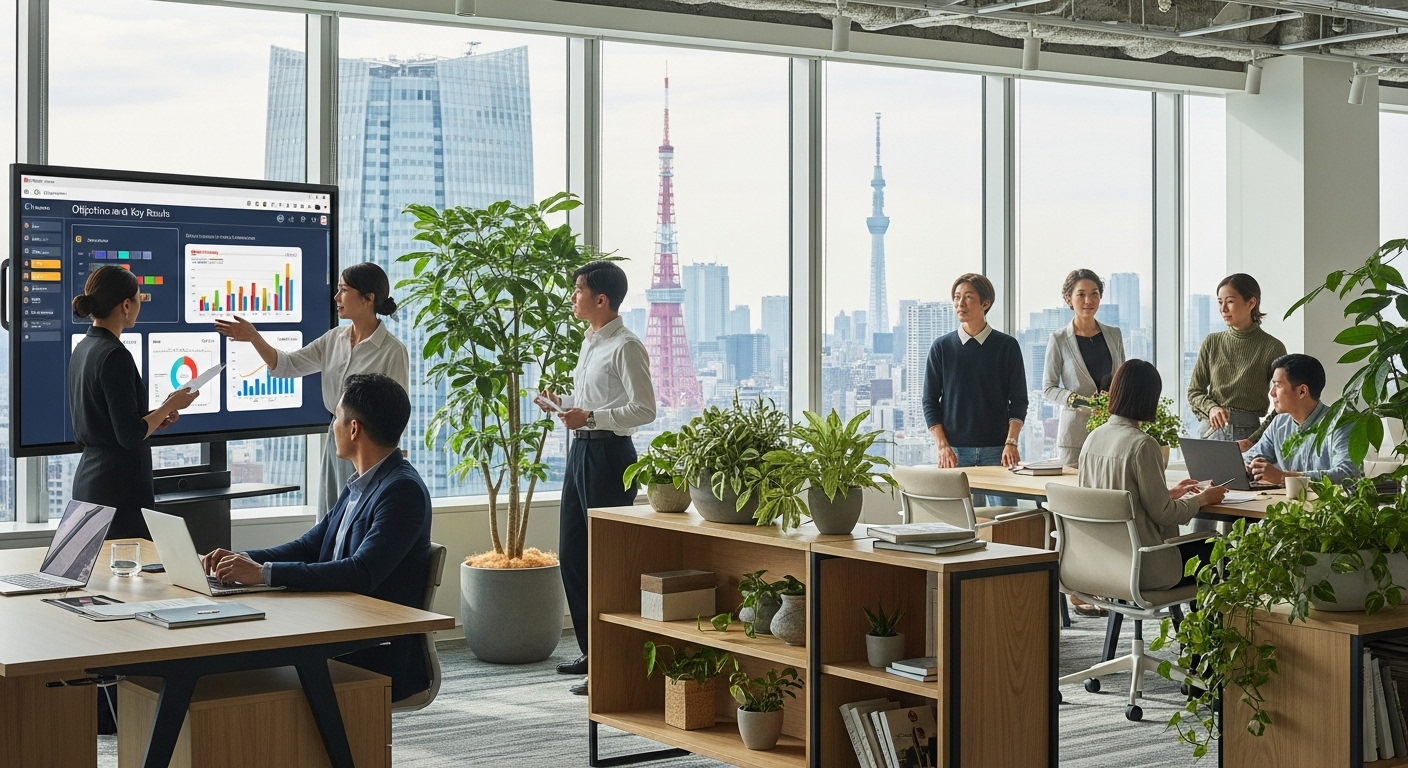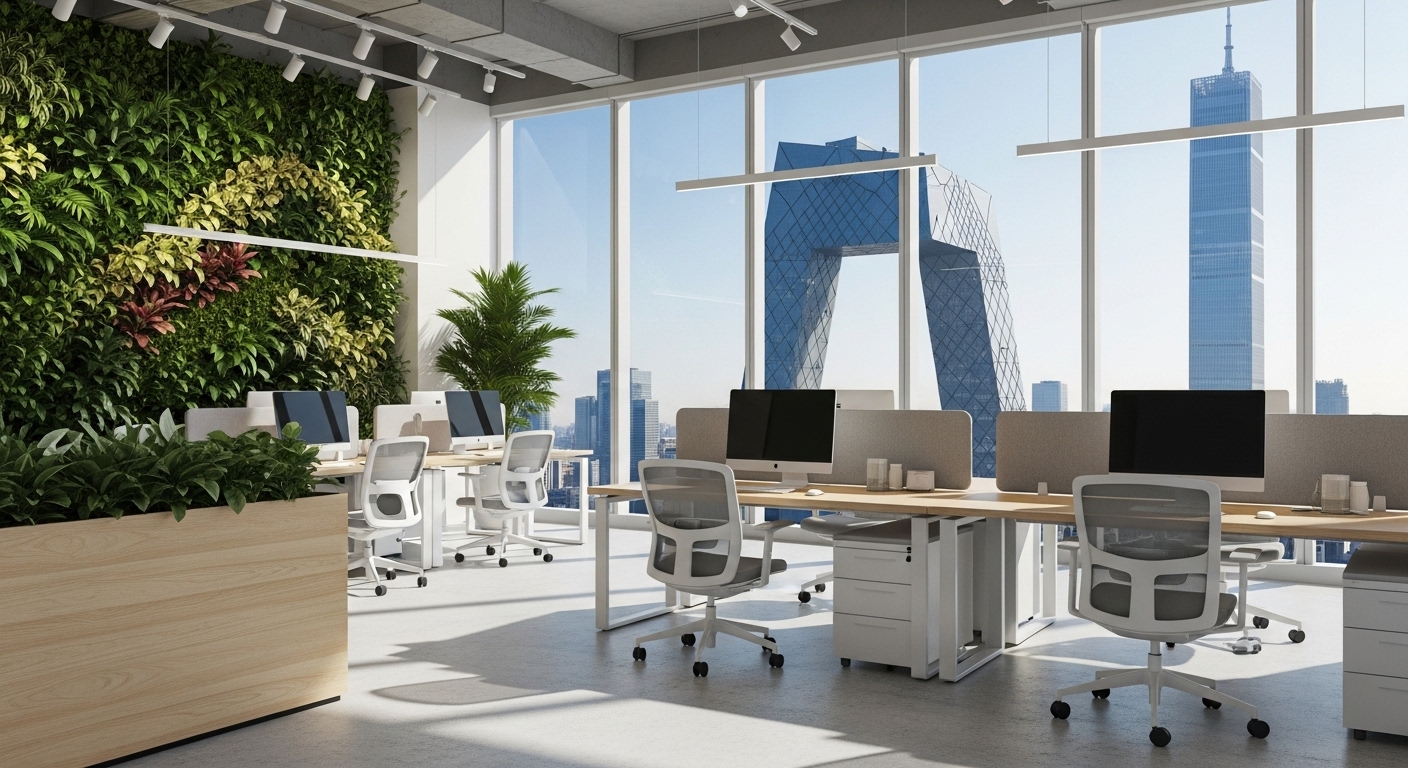Choosing a workspace in one of the world’s most dynamic and densely populated megacities is more than a logistical task; it’s a critical strategic decision that can define your business’s trajectory. The Tokyo commercial real estate market is a unique ecosystem, blending deeply ingrained traditions with hyper-modern efficiency. For any company, whether a startup looking for a foothold or an established corporation expanding its presence, the right office is a catalyst for productivity, talent attraction, and cultural integration. Navigating this landscape requires a thoughtful approach that goes beyond square footage and rental costs. It involves understanding the distinct personalities of different districts, decoding unique financial customs, and aligning your physical space with both your brand identity and the nuances of Japanese work culture. This guide provides a comprehensive checklist to help you navigate these complexities, ensuring your choice of workspace becomes a foundational asset for success in this vibrant metropolis.
Defining your business needs before the search begins
Before diving into property listings and district analysis, the most crucial step is an internal audit of your own business requirements. A premature search based on vague assumptions often leads to a workspace that hinders rather than helps growth. Start by creating a detailed profile of your ideal environment. The first element is headcount and growth projection. How many employees do you have now, and what is your realistic growth forecast for the next one, three, and five years? This will determine not only the initial size but also the need for scalability. A flexible workspace might be ideal for a company with aggressive growth plans, while a long-term lease could offer stability for a more established team. Next, define your operational non-negotiables. What specific facilities are essential for your daily workflow? This could include a certain number of private meeting rooms, high-security IT infrastructure, soundproofed areas for focused work, or a large communal space for team collaboration. Consider your brand identity. The workspace is a physical manifestation of your company’s values. A fintech firm might require a prestigious address with a formal, secure environment, whereas a creative agency would thrive in a more relaxed, open-plan space that encourages spontaneous interaction. Finally, establish a clear and comprehensive budget. This isn’t just the monthly rent; it includes initial setup costs, potential renovation expenses, agent fees, and the unique Japanese real estate customs like ‘key money’ and security deposits, which can significantly impact your upfront capital expenditure. A thorough internal assessment provides a clear framework that makes the external search process far more efficient and targeted.
Location decoded: choosing the right Tokyo district
In a city as vast and multifaceted as Tokyo, ‘location, location, location’ is more than a cliché; it’s the cornerstone of your workspace strategy. Each major business district possesses a distinct character, industry focus, and logistical profile. Choosing the right one is critical for client access, talent acquisition, and brand positioning. Marunouchi and Otemachi, located next to Tokyo Station, are the city’s premier financial hubs. Home to the headquarters of major banks, trading houses, and multinational corporations, an address here signals prestige, stability, and a strong corporate presence. The area is defined by its modern skyscrapers, impeccable infrastructure, and direct access to Shinkansen lines. In contrast, Shibuya has firmly established itself as the epicenter of Japan’s tech and creative industries. It’s a vibrant, youth-oriented district buzzing with startups, gaming companies, and digital marketing agencies. Choosing a space in Shibuya sends a message of innovation and dynamism, and it provides access to a young, tech-savvy talent pool. Another major hub is Shinjuku, which boasts the world’s busiest railway station. It offers a diverse mix of businesses, from major tech firms and corporate offices to retail headquarters and government buildings, including the Tokyo Metropolitan Government Building. Its unparalleled connectivity makes it an attractive and practical choice for companies whose employees commute from various parts of the Greater Tokyo area. When evaluating districts, consider your ecosystem. Where are your key clients, partners, and competitors located? Furthermore, analyze commute times for your current and future employees. A convenient and accessible location is a major factor in employee satisfaction and talent retention within Tokyo.
The flexibility spectrum: from traditional leases to coworking spaces
The modern workforce demands adaptability, and the workspace market has evolved to meet this need. Businesses are no longer confined to the binary choice of buying or leasing. Today, there’s a spectrum of options, each with distinct advantages. The traditional lease (futsuu shataku) remains a viable option for established companies seeking stability, control, and a long-term home. This model allows for complete customization of the space to perfectly reflect brand identity and specific operational needs. However, it comes with significant upfront costs, including security deposits (shikikin), non-refundable ‘key money’ (reikin), and agent commissions, along with a multi-year commitment. On the other end of the spectrum are coworking spaces, which have gained immense popularity for their flexibility and community-driven environment. These are ideal for freelancers, startups, and small teams. They offer a plug-and-play solution with minimal initial investment, all-inclusive amenities, and valuable networking opportunities. Occupying the middle ground are serviced offices. These provide private, fully furnished office suites within a larger managed facility. They combine the privacy and professionalism of a traditional office with the flexibility and convenience of a coworking space. Contracts are often shorter, and services like reception, IT support, and cleaning are included, making them an excellent choice for companies entering a new market or for those in a phase of rapid, unpredictable growth. Many businesses are now adopting a hybrid portfolio approach, combining a smaller long-term lease for a central headquarters with flexible memberships at various coworking or serviced offices to support a distributed workforce.
Navigating the financial landscape of Tokyo real estate
Understanding the unique financial customs of the Japanese real estate market is essential to avoid surprises and create an accurate budget. The sticker price of the monthly rent is only one part of the total cost of occupancy. When securing a traditional lease in Tokyo, several upfront payments are standard. The most significant is the security deposit (shikikin or hoshokin), which typically amounts to 6-12 months’ rent for commercial properties. While mostly refundable at the end of the lease, deductions for restoration work are common. A uniquely Japanese component is ‘key money’ (reikin), a non-refundable gift to the landlord, which can be equivalent to one or two months’ rent. While more common in residential leases, it can still appear in commercial agreements, especially for high-demand properties. Additionally, you will likely pay a brokerage fee (chukai tesuryo) to the real estate agent, usually one month’s rent plus tax. There may also be a renewal fee (koshinryo) every two years. Beyond these initial costs, businesses must budget for office fit-out, insurance, and utilities. In contrast, flexible workspaces like serviced offices or coworking spaces bundle most of these costs into a single monthly fee. This simplifies budgeting and drastically reduces the initial capital outlay. When comparing options, it’s critical to conduct a Total Cost of Occupancy (TCO) analysis. This means calculating all expenses over the intended lease term for a traditional office and comparing it against the all-inclusive monthly fee of a flexible option for the same period. This holistic financial view will reveal the most cost-effective solution for your specific business stage and financial structure.
Aligning your workspace with Japanese work culture
A successful workspace strategy goes beyond logistics and finance; it must also be culturally resonant. Japanese work culture is undergoing a fascinating evolution, and the physical office environment plays a key role in this shift. Traditionally, Japanese offices favored open-plan layouts designed for efficiency and managerial oversight. Desks were often arranged in groups (or ‘islands’) by department, fostering team unity and facilitating easy communication within the group. There was a strong emphasis on diligence, quiet concentration, and a clear hierarchical structure. While these principles of efficiency and focus remain important, the rise of the tech sector and influence from Western business practices have introduced new priorities. Companies are increasingly seeking to foster innovation, cross-departmental collaboration, and employee well-being. This has led to the adoption of more varied office designs. Modern workspaces now often include dedicated ‘focus zones’ for deep work, vibrant communal areas and cafes for informal interaction, and flexible project rooms that can be reconfigured as needed. The concept of ‘ba’ (場), a shared space for knowledge creation and interaction, is being reinterpreted in a corporate context. When choosing your space, consider how the layout can support your desired company culture. Do you need to encourage serendipitous encounters between different teams? Or is your primary goal to provide a distraction-free environment for highly technical work? The ideal workspace will strike a balance, respecting the cultural value placed on hard work and harmony while providing the dynamic environment needed to spark creativity and attract top talent in a competitive market.
Future-proofing your choice: technology and scalability
In a city that is synonymous with technological advancement, your workspace must be a platform for future growth, not a technological bottleneck. Evaluating the IT infrastructure and scalability potential of a prospective office is a non-negotiable step in the selection process. At a foundational level, verify the quality and reliability of the internet connection. High-speed, stable fiber optic connectivity is the standard, but it’s wise to inquire about provider options, redundancy, and the building’s capacity to handle high data loads. For companies handling sensitive information, physical and digital security are paramount. Assess the building’s access control systems, surveillance, and the server room’s security features. In a serviced office or coworking environment, inquire about their data privacy policies, firewalls, and whether they offer private, secure networks. Beyond the basics, consider the potential for integrating smart office technology. Features like app-based meeting room booking, smart lighting and climate control, and digital receptionists can significantly enhance efficiency and the employee experience. Finally, and perhaps most importantly, ensure your chosen solution is scalable. For a traditional lease, this might mean understanding the options for leasing adjacent space in the future. For flexible workspaces, it means confirming their ability to accommodate your team as it grows, whether by providing more desks or a larger private office within the same facility. Your workspace decision should align with your long-term business plan, providing a stable, secure, and technologically robust environment that can evolve alongside your company’s journey in Tokyo.
Ultimately, selecting the right workspace is a strategic exercise in balancing vision with practicality. The process requires a methodical approach that begins with deep introspection into your company’s needs, culture, and future ambitions. This foundational understanding then serves as your compass for navigating the diverse districts, financial nuances, and workspace models available. From the corporate prestige of Marunouchi to the creative energy of Shibuya, the city offers an environment to match every business identity. Whether the stability of a long-term lease or the agility of a flexible office is the right fit, the decision must be informed by a clear-eyed analysis of total costs and long-term objectives. By carefully considering each point on this checklist—internal needs, location, flexibility, finances, cultural fit, and future-proofing—you transform the daunting task of finding an office into a powerful opportunity. The right space is more than just four walls; it is an active contributor to your success, a tool for attracting the best talent, and a physical embodiment of your brand’s commitment to excellence in one of the world’s most exciting business capitals.





